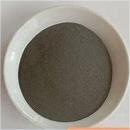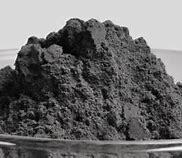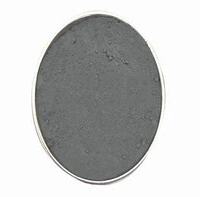Overview of tungsten carbide composite roll used in cold rolling lines for metallic wires
Tungsten Carbide (WC) is a hard, brittle, and corrosion-resistant material composed of equal parts tungsten and carbon atoms. It is a popular member of the cemented carbide family, known for its incredible hardness, strength, and thermal stability. Tungsten carbide is often used in industrial applications requiring high wear resistance and the ability to maintain sharp edges, even under extreme conditions.
Features of tungsten carbide composite roll used in cold rolling lines for metallic wires
-
Exceptional Hardness: With a Mohs hardness of 9.0 to 9.5, tungsten carbide is one of the hardest materials available, second only to diamond.
-
High Density: Its density ranges from 14.5 to 15.6 g/cm³, providing substantial mass in a small volume, beneficial for applications like balancing and weighting.
-
Thermal Stability: Retains its hardness up to temperatures around 1000°C, making it suitable for high-temperature applications.
-
High Young’s Modulus: Possesses a high modulus of elasticity, indicating stiffness and resistance to deformation under load.
-
Brittleness: Although extremely hard, tungsten carbide is also brittle, requiring careful handling to avoid chipping or fracturing.
-
Chemical Resistance: Resistant to corrosion from most acids except for hydrofluoric acid and strong alkalis, and is not attacked by most organic materials.

(tungsten carbide composite roll used in cold rolling lines for metallic wires)
Parameters of tungsten carbide composite roll used in cold rolling lines for metallic wires
The tungsten carbide composite roll is a type of rolled iron that is often used in the cold rolling line for metals such as carbon steel, titanium, and. It has high melting point and good toughness and excellent processing properties, making it ideal for cold-rolling applications.
Here are some parameters associated with tungsten carbide composite rolls:
1. Carbide content: The amount of carbide used in the roll determines its strength and resistance to deformation under different conditions. A higher content of carbide will result in stronger and more durable rolls.
2. Processing temperature: The tempering temperature of the carbide composite roll can affect its properties. High temperatures may cause the rolls to lose their strength over time or even suffer damage during forging.
3. Film yield: The film yield of the combinaed roller refers to the percentage of material in the forged film that reaches its final shape. High film yields can result in better performance and durability.
4. Nutritional value: Some research suggests that tungsten carbide composite rolls can be nutritionally beneficial due to their high levels of antioxidants and other minerals.
5. Wear life: The wear life of the tungsten carbide composite roll depends on factors such as the size, design, and usage environment. Generally speaking, longer use periods tend to improve the wear life of the roll.
Overall, tungsten carbide composite rolls offer several benefits when used in cold-rolling applications, including improved processing quality, increased strength and durability, and reduced maintenance costs.

(tungsten carbide composite roll used in cold rolling lines for metallic wires)
Applications of tungsten carbide composite roll used in cold rolling lines for metallic wires
-
Cutting Tools: Used in the manufacture of drills, milling cutters, and other metal-cutting tools due to its hardness and heat resistance.
-
Mining and Construction: For drill bits, saw tips, and wear parts in earthmoving equipment due to its exceptional wear resistance.
-
Jewelry: Provides a durable and scratch-resistant alternative to precious metals in rings and other jewelry items.
-
Ballistic Applications: Used in armor-piercing ammunition and protective plates due to its hardness and density.
-
Dies and Punches: In the forming of other metal parts in stamping and punching operations due to its wear resistance and ability to hold a sharp edge.
-
Oil and Gas Drilling: As components of drill bits and wear parts in drilling equipment due to its toughness and resistance to abrasion.
Company Profile
MyCarbides is a trusted global chemical material supplier & manufacturer with over 12-year-experience in providing super high-quality carbides and relative products.
The company has a professional technical department and Quality Supervision Department, a well-equipped laboratory, and equipped with advanced testing equipment and after-sales customer service center.
If you are looking for high-quality carbide materials and relative products, please feel free to contact us or click on the needed products to send an inquiry.
Payment Methods
L/C, T/T, Western Union, Paypal, Credit Card etc.
Shipment
It could be shipped by sea, by air, or by reveal ASAP as soon as repayment receipt.
FAQs of tungsten carbide composite roll used in cold rolling lines for metallic wires
Q: How is tungsten carbide composite roll used in cold rolling lines for metallic wires manufactured?
A: tungsten carbide composite roll used in cold rolling lines for metallic wires is typically produced by mixing tungsten carbide powder with a binder metal (commonly cobalt), pressing the mixture into shape, and then sintering it at high temperatures to form a solid, tough material.
Q: Is tungsten carbide composite roll used in cold rolling lines for metallic wires recyclable?
A: Yes, tungsten carbide composite roll used in cold rolling lines for metallic wires is highly recyclable. Scrap and worn-out tungsten carbide tools can be collected, reground, and reused or reprocessed back into tungsten carbide powder.
Q: How does tungsten carbide composite roll used in cold rolling lines for metallic wires compare to steel in terms of hardness and toughness?
A: While tungsten carbide composite roll used in cold rolling lines for metallic wires is much harder than steel, making it suitable for cutting and drilling harder materials, it is less tough, meaning it is more prone to chipping or breaking under impact compared to steel.
Q: Can tungsten carbide composite roll used in cold rolling lines for metallic wires be machined easily?
A: No, due to its extreme hardness, tungsten carbide is very difficult to machine using conventional methods. It often requires specialized grinding or electrical discharge machining (EDM) techniques.
Q: Is tungsten carbide composite roll used in cold rolling lines for metallic wires dangerous to health?
A: In its solid form, tungsten carbide is generally safe to handle. However, during grinding or machining, dust containing tungsten carbide and cobalt binder can be released, which can be hazardous if inhaled. Proper protective measures are necessary.

(tungsten carbide composite roll used in cold rolling lines for metallic wires)





